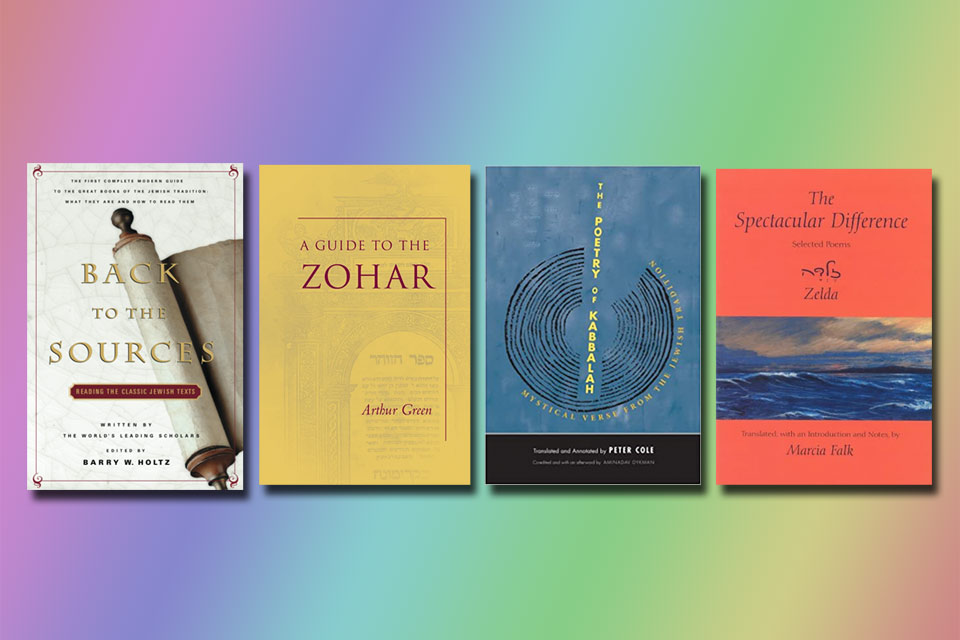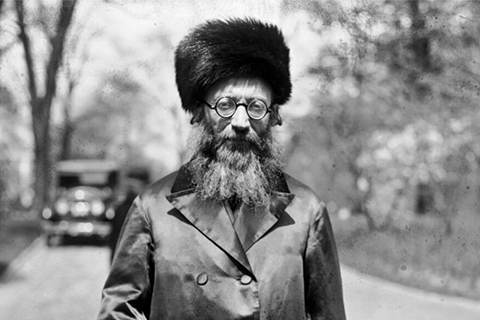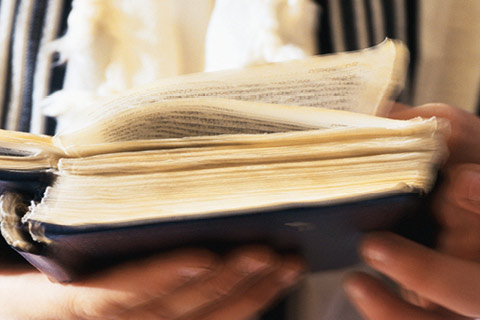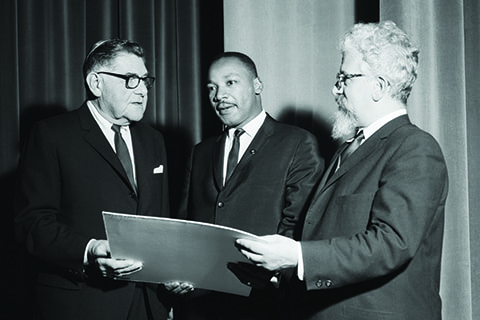5 Must-Read Books on Kabbalah

Sept. 9, 2022
By Yehudah Mirsky
Kabbalah, literally "reception" or "tradition" in Hebrew, is a vast and rich body of texts, ideas, and practices, dating to antiquity and a living tradition until today.
Though largely esoteric, the Kabbalah has played a crucial role in Jewish history and represents a significant chapter in the religious history of humankind.
Like halakha (traditional Jewish law) and other traditions of Jewish thought, the Kabbalistic tradition integrates thought and practice in the service of God. It reads and creatively re-reads the Hebrew Bible, traditional Jewish law and practice, and the Talmud (rabbinical commentaries), seeking to obtain direct knowledge and intimate communion with divinity itself from within our own deeply conflicted and imperfect world.
As always in the world of Jewish texts, the riches are so vast and intertwined that one hardly knows where to begin. What's more, taking their cue from the book of Genesis, in which God's speech creates the entire cosmos, the Kabbalists understand the Hebrew language itself as the very stuff of Being.
That might seem a barrier to the English reader, but we must start somewhere. Happily, there are now several excellent volumes with which to start.
Barry Holtz, editor, Back the Sources: Reading the Classic Jewish Texts (Simon & Schuster, 1984)
This volume (almost all of whose authors were Brandeis alumni, faculty, or both) is a magnificent introduction to classic Jewish texts, including the Kabbalah. Historical surveys, literary analysis, and careful pedagogy inform every essay. This past year I did a reading course on this book with an undergraduate and was struck by how fresh and illuminating this volume is nearly 40 years after it was published.
Arthur Green, A Guide to the Zohar (Stanford University Press, 2003)
This book opens doors not only to the Zohar — written during the Middle Ages and perhaps the most central Kabbalistic work — but also to the centuries of thought and practice that led up to the Zohar. It provides an invaluable introduction to the robust scholarly debates about the Zohar's origins and meaning.
Professor emeritus of Near Eastern and Judaic studies Arthur Green, a leading contemporary Jewish educator and theologian, expertly weaves together erudition, acuity, and existential concern in a richly resonant yet always human voice.
Ariel Evan Mayse, ed. From the Depth of the Well: An Anthology of Jewish Mysticism (Paulist Press, 2014)
Mayse is one of the best younger scholars of Kabbalah today. His work synthesizes learning, philosophical acuity, and marvelous literary sensitivity.
This anthology of Kabbalistic texts, carefully selected, introduced, translated and annotated, takes the reader through the Kabbalistic tradition from its beginnings to the late 20th century. It is a pleasure in itself and an invaluable foundation for further study.
The Poetry of Kabbalah: Mystical Verse from the Jewish Tradition, translated and annotated by Peter Cole, co-edited with an afterword by Aminadav Dykman (Yale University Press, 2012)
In many ways, Kabbalah eludes and creatively scrambles our usual categories of philosophy, poetry, myth, theology, ritual, and more.
Peter Cole is one of our finest living translators, a marvelous poet, and an accomplished scholar, and Aminadav Dykman is a leading scholar of literary translation. Here, they present Kabbalistic texts from antiquity until the present in a way that conveys both their theological richness and sheer expressive, imaginative power.
The translations are elegant, fluent, strikingly beautiful, yet faithful to the originals. They are accompanied by rich endnotes that lay out the abundance of scholarly discussion on the texts and by the Hebrew and Aramaic texts themselves, from ancient texts of ascension to contemporary Hebrew poetry.
Marcia Falk, editor and translator, The Spectacular Difference: Selected Poems of Zelda (Hebrew Union College Press, 2004)
An ultraorthodox lifelong Jerusalemite and member of the dynastic family of Chabad Hasidism, Zelda Shneurson Mishkovsky — revered simply as Zelda — wrote poems throughout the 20th century that are a genre unto themselves. Spectacularly beautiful, lyrical, caressing yet summoning, her work weaves the recesses of Bible, rabbinic, Kabbalistic and Hasidic Hebrew into a modern idiom that looks deeply into the prosaic aspects of daily life yet opens up a kind of transcendence all her own.
Not a rabbi or, God save us, an academic (though she was a schoolteacher, and one of her pupils was none other than Israeli novelist Amos Oz), her poems offer an entry into the kinds of inner lives that propelled the Kabbalists over the centuries and suggests that these remarkable poetic-transcendent experiences and the moral reflection they bring still may be possible today.
Her translator, Marcia Falk, is an accomplished liturgist and poet; reading her work, even when a translation of someone else's, is its own reward.
For more on Marcia Falk's work, see Less God, More Feminism: A New Haggadah from an Acclaimed Poet and New Prayers for Ancient Jewish Holidays.




